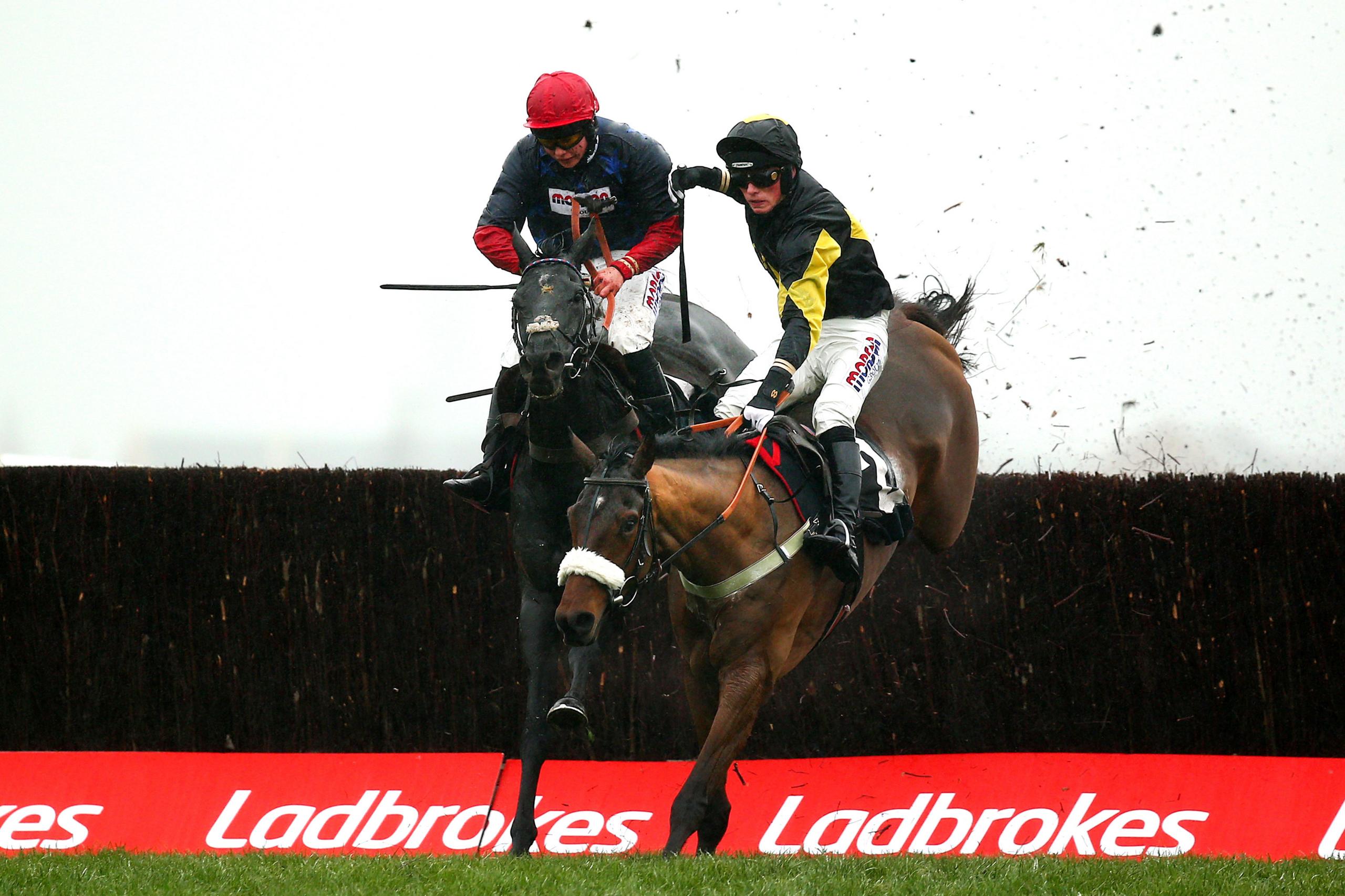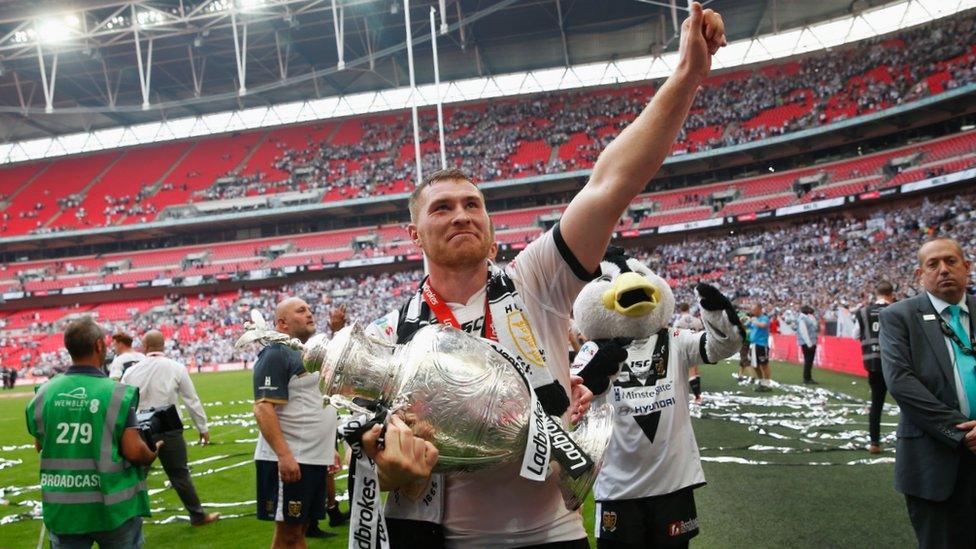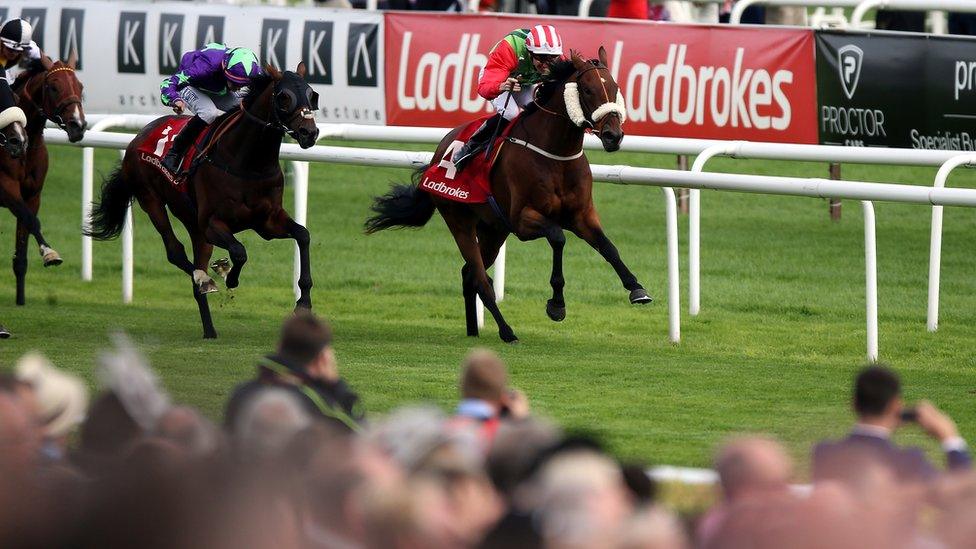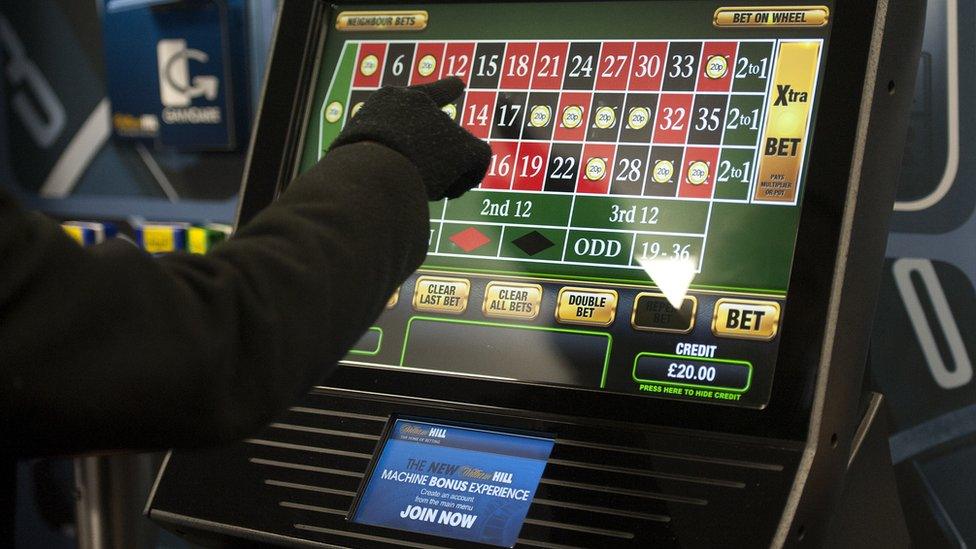Ladbrokes threatens cut to sponsorship
- Published

A large part of Ladbrokes' sports funding goes to horseracing
The UK's biggest bookmaker, Ladbrokes Coral, says it will have to cut the £8m it spends each year on sponsoring sports events if new rules reduce the maximum stake on gaming machines.
The government is currently deciding whether to cut maximum stakes on Fixed Odds Betting Terminals from £100 to as little as £2 to fight problem gambling.
More than half of Ladbrokes' betting shop revenue comes via the machines.
Ladbrokes says such a dramatic drop in income means cuts are made elsewhere.
Sponsorship
Almost £3.5m of the company's sports sponsorship is dedicated to horseracing.
This includes the Ladbrokes Winter Carnival (a two day meeting at Newbury), the Coral Scottish and Welsh Grand Nationals, the Coral Cup (Wednesday at Cheltenham), the Coral Eclipse (one of the biggest flat races of the year) and the Coral Sprint at York.
It also sponsors the Rugby Football League Challenge Cup and the Scottish Professional Football League as well as snooker and darts.

Ladbrokes' sponsorship of the Rugby League's Ladbrokes Challenge Cup means it gets prominent promotion, including having its ribbons on the trophy
Ladbrokes said: "A severe stake cut has many implications not least on jobs, the Treasury and the sports we support.
"Sports sponsorship is a two-way street, yes we get exposure but it also helps sports finance their entire structures right down to grass-roots funding."
The company suggested that horse racing was less vulnerable to potential sponsorship cuts than other sports.
It said: "Horse racing is in the bookie DNA and some sponsorships and partnerships go back many years and have a history and association that make them very valuable and high on the list to continue."
William Hill also says that its £1m sponsorship of horse racing could be "at risk" if the stake on FOBTs was set too low.
Horse racing
The possibility of losing sponsorship is yet another headache for horse racing, which fears that anything that hurts high street bookmakers could reduce its funding.
Racing Post editor Bruce Millington said: "No-one likes the fact that the horseracing industry is a hostage to a whole load of high octane fruit machines but there's little question that a £2 limit would have significant implications."
Sponsorship is just one of the ways the sport is funded by bookmakers.

Horse racing bets and media screening rights also raise money for the sport
A 10% levy on horse racing bets contributes about £50m, which is managed and distributed by the Horserace Levy Betting Board as prize money, to improve and support racecourses and invest in equine veterinary science.
This used to come from bets placed in shops, but last year it was expanded to include online and offshore revenue. As a result, it is expected to double this year and the impact of any potential shop closures on it is disputed.
The Department for Digital, Culture, Media and Sport said gambling was one of many ways in which sports obtain fundraising.
"We are clear that FOBT stakes will be cut to ensure we have a safe and sustainable industry where vulnerable people are protected," it said in a statement.
The department said a final decision on maximum bets will be made "in due course".
Screen rights
A much larger loss of money for horse racing is likely come in the area of media rights.
Each betting shop pays about £30,000 a year to the industry to screen their races. If curbing FOBTs leads to a reduction in the number of shops, as the bookmakers say, then that would mean there would be fewer screens and therefore fewer buyers for the events.
The chief executive of the largest race course group in the UK, Arena Racing Company, Martin Cruddace, estimates that a £2 maximum stake could lead to a minimum £50m impact on racing.
"The effect on prize money and the economic ecosystem of the industry would be pretty catastrophic," he said.
"It would be a sad irony that the great work of the industry and government in extending the levy to online operators last year could be undone (and more) at a stroke."
- Published22 January 2018

- Published1 February 2018
